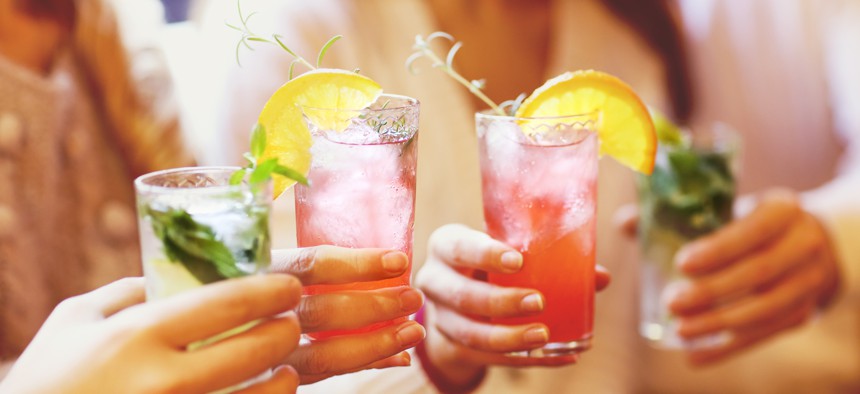Alcohol Consumption Falls to Near 20-Year Lows, Poll Finds

istockphoto.com/petrenkod
Adults who say they drink beer, wine or spirits dropped to 60%, a Gallup poll shows. However, other research suggests alcohol consumption spiked dramatically during the early months of the pandemic.
Some 60% of U.S. adults surveyed say they drink alcoholic beverages, down from 65% in 2019, according to a recent Gallup poll. The 2021 figure is among the lowest recorded by Gallup during the past two decades, with the highest being 67% in 2010.
Men (63%) are more likely than women (57%) to drink alcoholic beverages, the poll shows. Likewise, adults aged 35 to 54 are more likely to drink than their older and younger counterparts, and college graduates drink more than those without a college degree.
Since the late 1980s, the share of people who responded to the poll and said they were drinkers has fluctuated from a low mark of 56% around the early 1990s, up into the mid-60% range.
Income also aligns with drinking habits. Less than half of adults surveyed with an annual household income of less than $40,000 (44%) say they drink alcoholic beverages, while 62% of those earning $40,000 to $99,999 and 81% earning $100,000 or more drink. Meanwhile, fewer people who attend religious services at least once a week (42%) report drinking alcohol, compared with those who attend a religious service at least one time per month (61%) or less often/never (67%).
Not only are fewer adults drinking alcohol, but those who do drink are consuming less than they have in the recent past. This year, drinkers consumed on average 3.6 drinks a week, the lowest number since 2001, the survey shows.
Gallup also asked survey takers whether they think they drink too much.This year, 18% said they sometimes drink more than they should, which is one of the lowest percentages since 1978. In the mid-to-late 1980s, roughly one in three U.S. drinkers said they sometimes drank too much.
However, other reports show that alcohol consumption increased markedly—especially at home—during the early months of the pandemic. From March to September 2020, U.S. alcohol retail store sales rose dramatically while food and drinking establishment sales decreased, according to a recently released study by the Columbia University Mailman School of Public Health. Retail alcohol sales plateaued in the third quarter of last year, the study shows.
The National Institute of Alcohol Abuse and Alcoholism states on its website that more people may be drinking or drinking more heavily to cope with stress, sleep disturbances and boredom due to the pandemic.
Gallup conducts its alcohol consumption survey every year, but skipped 2020 because of Covid-19. For more information from the 2021 survey click here.
Jean Dimeo is the managing editor of Route Fifty.
NEXT STORY: State Officials to Drone Operators: Please Stop Harassing the Animals





